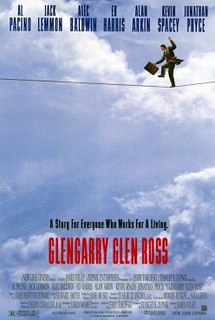If Stanley Hauerwas is right then I may be putting my salvation at risk by acknowledging January 1 as the beginning of the "New Year". As an ex-semi-professional poker player, however, "risk" is my middle name, so that's a chance I'm willing to take.
2012 began in Maynooth. I arrived to pouring rain, which made me feel instantly at home. Kevin picked me up at the train station, and even moved the car so that I wouldn't have to step through a puddle to get into the passenger seat. Such a gesture set the tone for the next four weeks.
Maynooth Community Church had no need of me. My biggest contribution over the course of the month was helping at Friday night set up, which involved setting out chairs and readying the sound system for Sunday morning. These were not tasks for which a year and a half of Bible college was absolutely necessary. I imagine my placement was supposed to look different given the, ahem, elite training I was bringing to the table. I was supposed to hone my skill set and increase my competence for ministry, but instead I was ministered to right from the start.
One of the refrains in a Brueggemann prayer is "You give and we receive." I was given so much that January, and all I really did was receive it. I wish I did more in response. If a Christian community is constituted by gift and reception, then I was definitely far more often on the receiving end than the giving end. It didn't occur to me at the time, but the dynamics of the placement were turned on their head. MCC didn't need me, but I needed MCC.
That, it turns out, was what I needed to learn: I need a local church. My salvation depends on it. The question remains: what is the church in light of the truth that we need it not only to obtain salvation, but to work out salvation's content? That the local church is more determinative for the history of the world than Dail Eireann or the White House is not a fact gleaned from objective experience. It is a fact of faith, if you will. In truth, I haven't had much faith in it. But slowly I am learning where the power of God is at work in the world. The first month of 2012 provided a glimpse at this power.
My final semester of second year was a busy one. I worked hard and left little time for play. Not to be vague or anything, but in light of the previous three semesters I made some decisions and surprisingly I actually stuck by them. I don't know if they were the right decisions or not. My transcript will probably back me up, but there is more to life than results...or so I'm told. Indeed that's probably what I'll end up telling myself after this first semester of final year, because I'm quite certain I didn't do as well as before. Maybe it's the fact that I spent most of the summer studying, but for whatever reason I couldn't quite keep up with the pace which I had set for myself. The motivation -- even the capacity -- to stay studying till the library closed at 10.30pm just wasn't there. The phrase "resting on your laurels" was used on more than one occasion, and I'm sure it's at least somewhat applicable.
To put a more positive spin on things, this semester has been about going deeper into previously explored territory rather than furrowing lots of new ground. The furrowing can wait until next year's dissertation, when I'll be writing about second century apologetics second century social ethics second century ecclesiology second century church/world relations ecclesial identity formation in the second century something to do with Christianity in the second century.
Like any Bible college student worthy of the name I did a few camps during the summer. They were three of the best weeks of the year. I got to be a scholar in residence at one, I got to share one of my testimonies (I'm postmodern like that) at another, and I got to coach football at the third. In fact at the football camp, let it be known to my readers that what is called the "nutmeg" in Ireland and the UK or the "panna" in most other parts of the world became known as the "Declan" for one week in Finaghy. Just to prove that the kids weren't misguided, in a recent football game I nutmegged Declaned the same guy twice with successive touches of the ball. The only problem: as much as the kids want to learn, you just can't teach that!
My procrastinated step into adulthood took a turn for the better when I passed my driving test in October. It didn't seem likely in September. It didn't even seem likely an hour before the test, when I was stuttering through my final lesson in torrential rain. That was actually the first time I had driven in crap conditions, so I just wasn't used to it. Then, lo and behold, about 5 minutes before my test was due to begin the rain stopped, the clouds broke, and I was greeted by that rarest of Galwegian sights: the sun - that beautiful big orange ball that makes things like cars and road signs easier to see. I made up some speed limits for the tester, guessed the make of car I would be driving (correctly, thank God), and took my accuser for a 25 minute drive around West Galway without bumping into anything important. I could have kissed him when he told me I passed, but I figured twice in the one day and he'd get suspicious. It was only in the last week or so that I've actually driven since becoming fully licensed, and I have to say - it feels good. "Watch out for the fool" says my father, passing on the advice his father gave to him. I haven't seen any fools yet, which has led me to coin my own piece of advice? If you can't spot the fool after half an hour in a car, then you are the fool.
I visited friends, made some new ones, watched Denis Suarez in the flesh, cried in front of my church, ate salad, took a long walk on a beach with another man, heard a very special lecture by Dr Charlie Hadjiev, scored my first and only goal for BBC football team, met Desie Alexander, started going to a church in Belfast, walked down Donegall Pass with a sign saying "I hate Protestants", went to the Giant's Causeway (underwhelming, and definitely no more than a few thousand years old if you ask me), played this brilliant game from South Korea where you throw four pieces of wood into the air and judge from other people's reactions whether you've done it well or badly (I'll figure it out for myself eventually), began a table tennis match in which I am 2-1 up in sets but losing 4-3 in the fourth set (with a set being the first to 5 games and a game being the first to 21 points), bladed (as one of my housemates calls roller-blading) and ice-skated, got given a banjo so that I can turn every church song into something that sounds like Mumford and Sons, went on a tour of the Tayto Factory, heard the music of Dmitri Tiomkin performed in the National Concert Hall, attended my two cousins' weddings (emphasis on the plural), and wondered about the future.
Where all this leaves me I don't know. I approach 2013 with less assurances than I had a year ago. The truth, however, is that they were never really assurances in the first place. John Milbank talks about the economy of gift, which involves a radical embrace of contingency. John Howard Yoder names and criticises our deep-seated desire to grab hold of the "handles of history" so that we can secure ourselves against contingency and make history come out right. Another name for this grabbing of the handles is "idolatry". I have desires, dreams...I may even have a plan or two. But if a class on Ecclesiastes has taught me anything, it's that I am not in control. That is not a justification for inaction. Nor is it cause for fear. Quite the opposite. To live out of control is to live in complete trust of the One in whom we live, move and have our being.
Trust and obey. Obedience may work or it may not. It is not given to us to ensure which way things go. There are no assurances, no givens, apart from God. And when the Infinite is the only given, who can tell what is in store?



